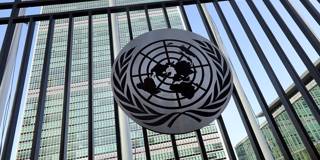The United Nations' failure to coordinate effectively during the COVID-19 crisis will bring about a difficult period of reckoning and tough decisions for the organization. Above all, the UN will have to abandon its old mindset and adopt institutional reforms that make it better equipped to address twenty-first-century challenges.
DOHA – The COVID-19 pandemic has exposed many institutional weaknesses, but above all, it has shown that the United Nations is in urgent need of reform. In particular, the response of the World Health Organization – the UN’s global health agency – to the virus has revealed obvious shortcomings, which reflect a lack of international consensus and cooperation, as well as widespread protectionism on the part of its stakeholders.

DOHA – The COVID-19 pandemic has exposed many institutional weaknesses, but above all, it has shown that the United Nations is in urgent need of reform. In particular, the response of the World Health Organization – the UN’s global health agency – to the virus has revealed obvious shortcomings, which reflect a lack of international consensus and cooperation, as well as widespread protectionism on the part of its stakeholders.